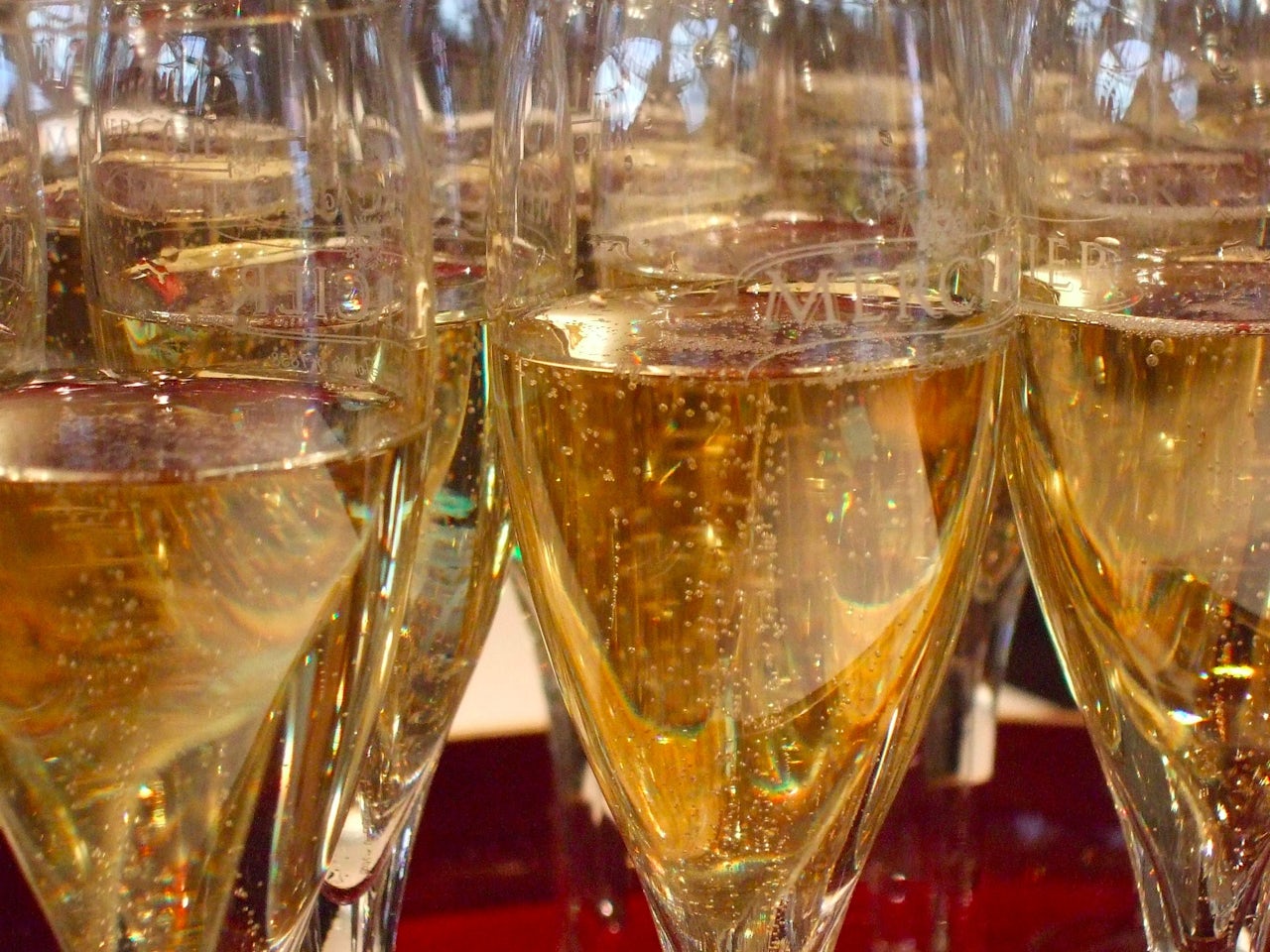Did you ever ask yourself, "Why is champagne so delicious?" Is it even possible to pour it into your mouth without smiling? Do you ever smell it and think to yourself, “Why do I bother with drinking anything else?”
I don’t drink alcohol anymore, and I don’t miss it. But I do miss champagne.
Scientists have long studied the chemical processes responsible for the distinct tastes and smells of liquors and wines. A recent discovery — one which any accomplished seltzer drinker could understand without science — confirms an idea long held to be true: A lot of the magic in champagne is actually magic in the bubbles.
Gérard Liger-Belair is a world renowned knower of all things champagne. His book Uncorked: The Science of Champagne deals quite seriously with such topics as "why you should serve champagne in a chilled glass," and it includes beautiful closeup images of the bubbles, showing off their complex, geometric patterns. But Gérard doesn’t just love champagne: He’s also a professor of chemical physics at the University of Reims Champagne-Ardenne. He’s also the author of an upcoming article in the journal EPJ Special Topics that focuses on this special topic: What makes champagne taste and smell so damn good?
What makes champagne taste and smell so damn good?
There are, it turns out, a lot of "neuro-physico-chemical mechanisms" that are responsible for the (literally) intoxicating taste and smell of bubbly. Taste and smell are intricately related, and people who lack a good sense of smell have very impaired perception of taste, so the interplay in champagne between the level of CO2 (the bubbles… did I mention the bubbles?) and the volatile organic compounds inside the bubbles are what create the taste. Those volatile organic compounds are also what create the smell. Sometimes called VOCs, volatile organic compounds are chemicals that have a low boiling point and a high vapor pressure. Most of the things that we smell, in fact, are VOCs.
Are you drinking yet?
In his journal article, Liger-Belair creates a fascinating blow-by-blow portrait of what the journey of the gas in each champagne bubble is like. He starts at the fermentation process of the grape and the creation of CO2, and ends with the bubbles bursting out of your glass on New Year’s Eve. They literally explode. The bubbles.
The process by which the champagne is corked up — again fermenting as the carbon dioxide is trapped inside the bottle — adds even more pressure and limits space further. All that pressure (well, most of it) remains inside the bottle until the cork is popped.
Where is all of this leading you may be wondering. Great question. It’s leading to better tasting wine, presumably, as scientists study exactly how bubbles work and by what process they come to make all of us so at ease in daring social situations around 11:55 p.m. on a Saturday night at the end of 2016.
Millions of people have glugged millions of liters of champagne without ever knowing how it’s made or by what magical process it comes to work the way it works. Part of the enjoyment, one might argue, is found in the mystery. And taking away that mystery, might, one could extrapolate, burst the bubble, dispel the spell. The champagne might not taste as good anymore. Who is to say?
There are increasingly fewer mysteries in this world, but also increasingly more to know. The more information I have access to, the more data points, graphs, visualizations, desktop notifications, memes, and so on, the less I am sure of. There are fewer secrets and yet more questions. I know now, sort of, after a few hours of reading, what makes champagne taste and smell so good: it’s the bubbles. And knowing that scientifically doesn’t tell me anything I didn’t already know in my gut, gurgling like when the champagne got there a hundred times over: It’s the bubbles.
A mystery dispelled demystifies. In 2016 I missed champagne sometimes. Now that I know how it works, I promise, in 2017, that I won't anymore.
